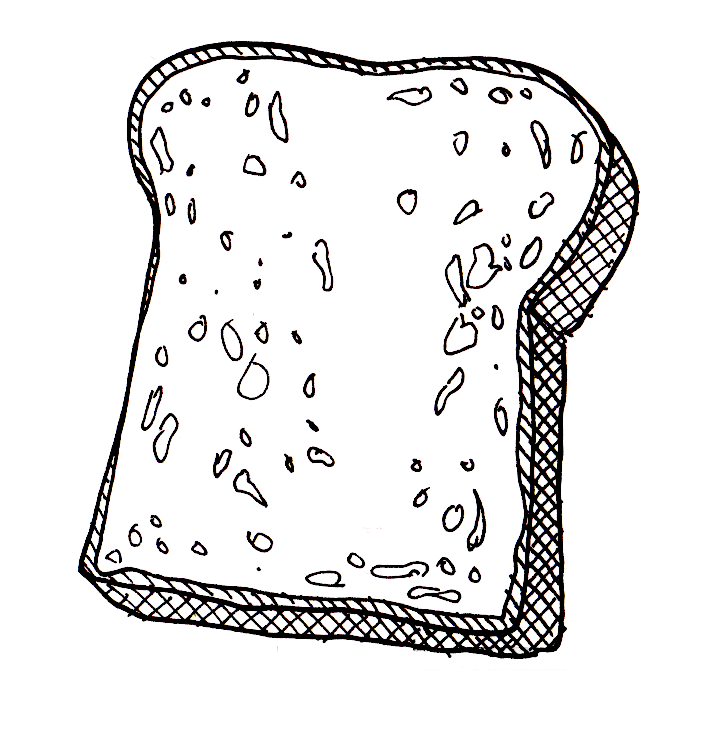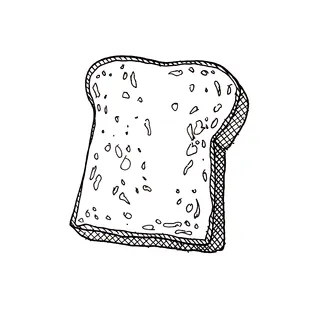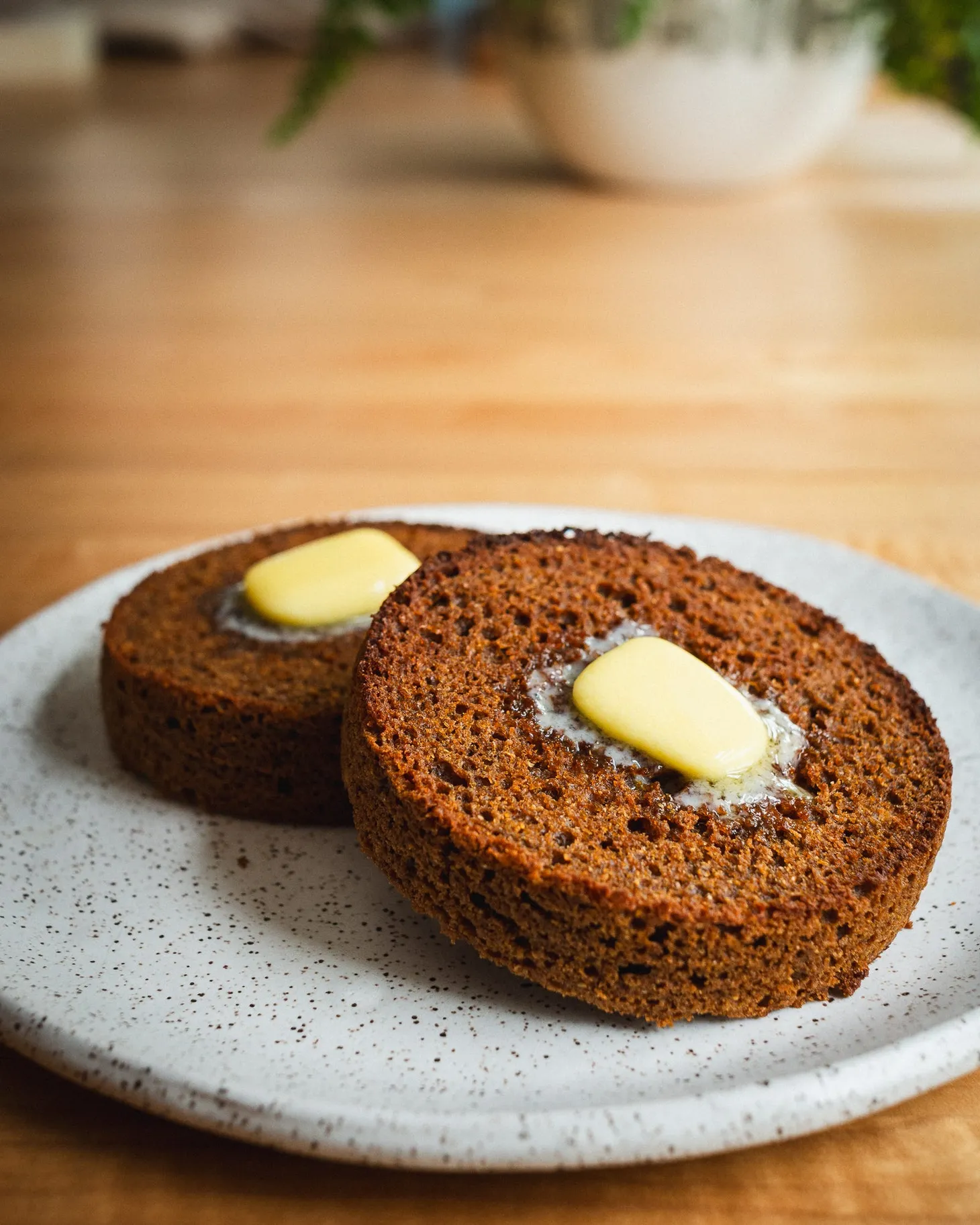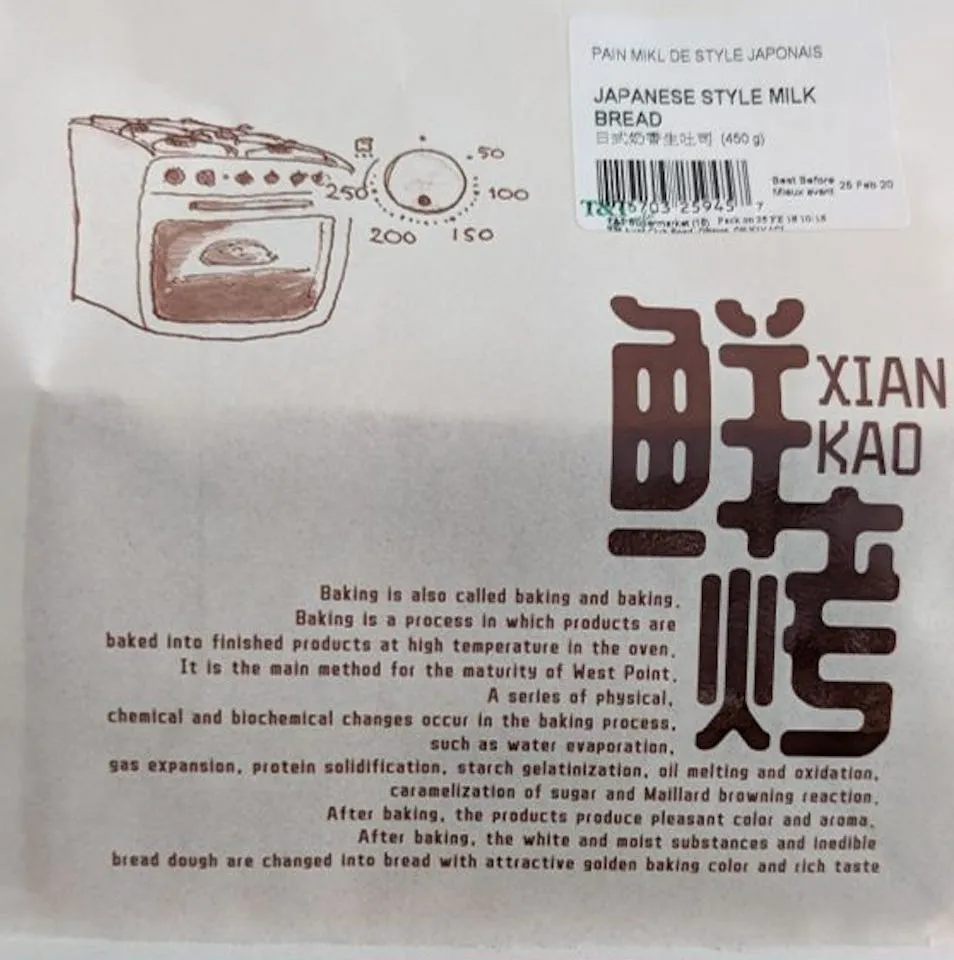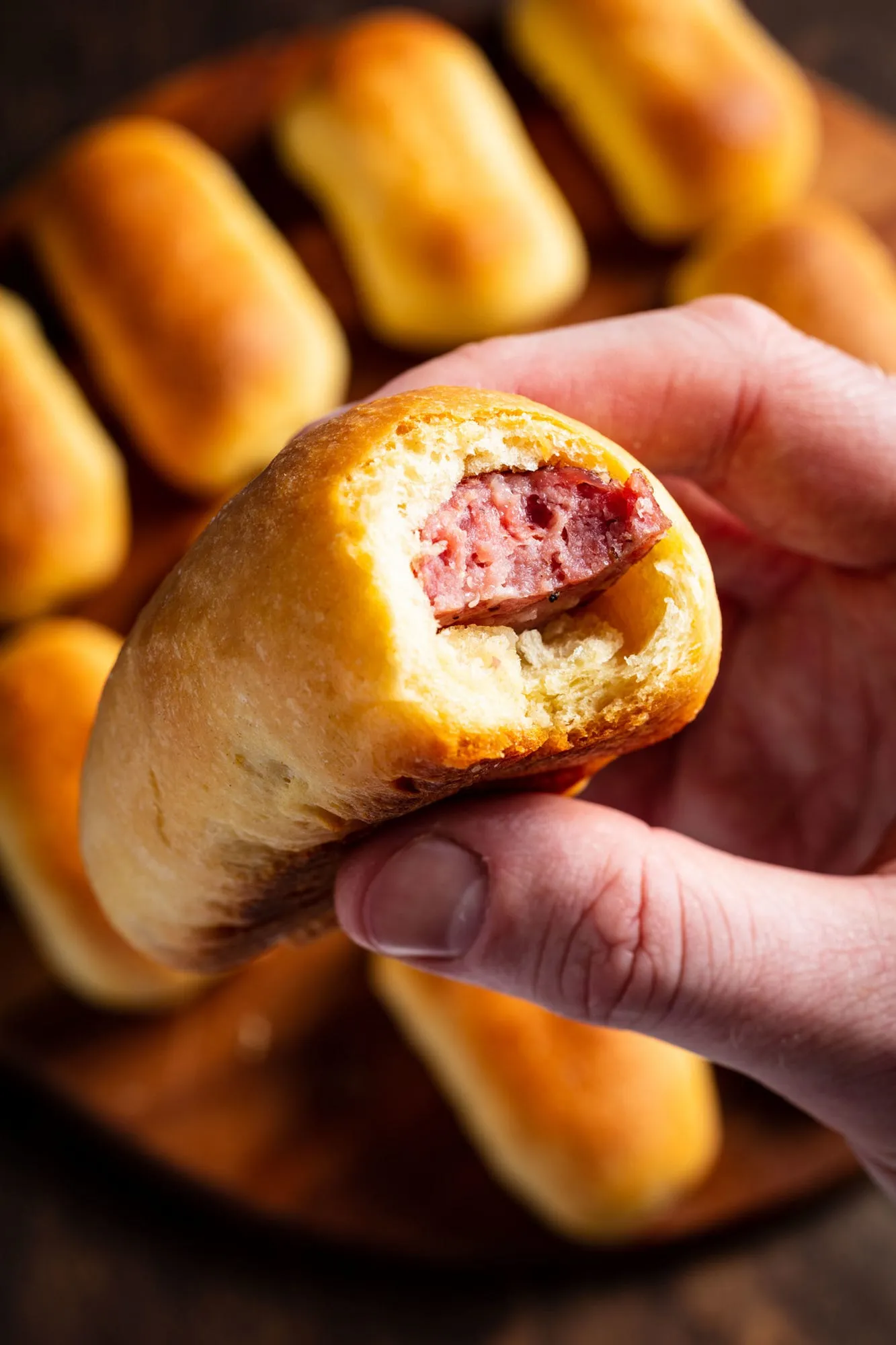Home bakers: Rick Easton thinks you are nuts
(But you should get his new book anyway)
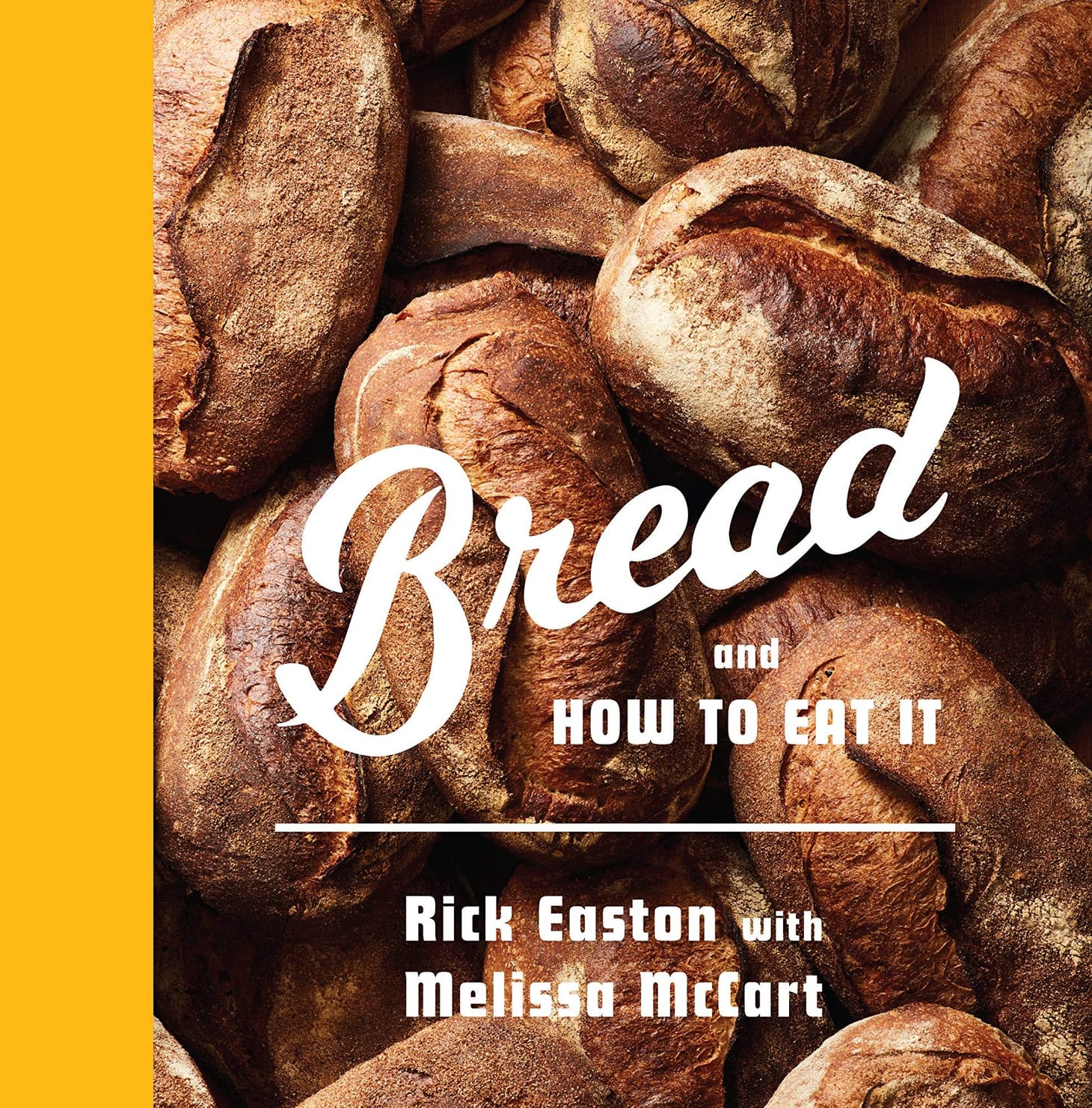
Table of Contents
Let me start by saying that I have great respect for Rick Easton. I’ve been admiring the breads and pizzas he makes at his Jersey City bakery Bread and Salt for a long time now, and it’s been high on my list of places to visit since he opened. His style of baking is exactly the sort I love best, and even from afar I can tell he knows what’s what.
So when I heard he had a bread cookbook in the works, I knew it would be special. And the book—Bread and How to Eat It—is special. Even in the glut of bread cookbooks on bookstore shelves these days, it stands out, since its focus is unique. Rather than being yet another book on how to make bread at home, its main theme is on how to use bread in cooking—how to make the most of great bread, whether in its prime, or after its shine has begun to fade.
There are recipes for pizzas, topped toast (ricotta & honey, clams on toast), sandwiches (grilled marinated zucchini with stracciatella and mint and roasted quince, Pecorino, and arugula), bread soups (pancotto al pomodoro, pancotto with broccoli rabe), meatballs, pastas with breadcrumbs (pasta with bread crumbs and cauliflower, bread gnocchi), and fried things using breadcrumbs (potato cake, arancini, suppli). There’s a long section on things to serve alongside bread, or where bread serves as the ideal utensil for eating (eggplant salad, grapefruit salad, purslane salad, sautéed peppers with olives). And there are numerous recipes for beans, either with bread included (pancotto with beans), or to serve with bread (dried chestnut and white bean soup, fava bean purée with bitter greens). There are even sweet use-it-up recipes, including “breakfast cereal” using toasted breadcrumbs as if they were GrapeNuts(!), and a torta di pane, a bread pudding in cake form. The book also includes a handful recipes for actual breads: a basic crusty sourdough, Italian-style rusks called friselle, and pizza bianca. Most everything here (in case it wasn’t already clear) comes from an Italian and Mediterranean perspective, since that’s the part of the world where Easton learned to bake and cook.
Still, you can probably understand my dismay when I came upon this paragraph from the introduction [emphases mine]:
If you want to make your own bread, knock yourself out. My basic bread recipe is on page 8. Personally, I think people who bake bread at home are nuts: It's timeconsuming. It's inefficient. Home ovens aren't designed to bake bread. The way to get good at making bread means baking again and again and again which can get expensive. Baking bread at home is like riding a bike on bent rims: you can do it, but most of us wouldn't.
Plus, why make your own when you can buy something great from your local bakery, as people have for thousands of years?
From the rest of the book, it’s clear that Easton has strong opinions about loads of things (he hates American-grown tomatoes, to a one, for example), so I was tempted to write this off as a curmudgeonly effort to encourage people to buy good bread from bakeries rather than make it at home. Surely he didn’t really think that baking bread at home was a pointless exercise, best left only for the experts?
But then I heard him discuss the book on Alicia Kennedy’s podcast:
[A]ctually the book isn't nearly as extreme as I had wanted, I had to answer some editorial demands there. I had hoped not to have any bread recipes at all in the book. Having done a great deal of home baking, when I started baking, and now being a professional baker having a bakery and having years of experience doing that, I think home baking is really one of the stupidest things anybody can engage in. I think it's an incredibly self indulgent activity that requires large amounts of time, that it's just not always realistic for most people's lives. I think it's all tied in with these very, very bizarre American notions of self-reliance and virtue, and all of that. And I think that's really just insane and kind of out of touch with reality.
I think that there are people who dedicate their lives to baking and I think it's a line of work that requires a lot of sacrifice. It's a lot of hard work, it's a lot of physical labor, there's not that much romantic about it, and to kind of distill that down into, “Here's this thing you can do in your own house. And, you know, I mean, and oh, it's like the same thing.” It just isn't, you know? There are people who have been doing this for years and have made those sacrifices and have accumulated knowledge and experience. I'm like, why wouldn't you let them do do their job? Like, you're not going to call a friend to come over and work on your teeth if he isn't a dentist? You know, you're not gonna let anybody do your taxes or whatever else? So it's like, you know, bakers make the breads.
Where to begin with all this?
Yes, I am all for encouraging people to patronize their local bakeries, but what if you don’t have a Bread and Salt just down the street to hit up when you need a loaf? I live in a large city with tons of great food options, and even I don’t have a bakery close enough by for me to get a great loaf of bread when I’m out doing my shopping rounds. My favorite local bakery—Breadboard—is some 4 miles away. Which sounds close, but even if I had a car, it might take me 45 minutes to drive there on a good day.
And what of those people who don’t even have one that close? There are more and more great bakeries opening up here every day, but we have a long way to go before we are France, with one bakery for every 2000 people. I think Rick has forgotten that most Americans don’t live within a short drive from bakeries like his, leaving their options for great bread severely limited. Moreover, we are a vast, mostly rural country, and many people here have limited access to fresh produce, much less artisan-made breads.
As for the expense involved in home baking: Yes, flour is not cheap, especially these days, but you can still buy a bag of very good flour for less than the price of a quality loaf from a quality bakery. A beginning home baker might have the occasional failure, but armed with a solid recipe—maybe one of those that Easton’s editors forced him to include in Bread and How to Eat It, even—and a little practice, they can make something that is as good or better than what they might be able to find locally. Bread baking at home, despite Easton’s claims, is not hard to do, especially if you find one solid recipe and stick with it until it becomes second nature.
Sure, home ovens are not bread ovens, and not ideal for generating and retaining the steam needed to produce a great crust (and crumb), but guess what? Just about any pot large enough to hold a loaf of bread will give you results as good as the best bread ovens available to professional bakers. And while the vessel doesn’t have to be fancy, there are more and more reasonably-affordable dedicated bread pots available nowadays.
Given what happened during the Great Sourdough Craze of 2020, it might be tempting to think that home bread baking is a novel thing. Sure, bread has been baked by “pros” for thousands of years, but people have been making bread at home for just as long, if not longer. (There was once even a time when people would make their own bread at home and bring it to the local oven to be baked by the person manning it, so the line between home baker and professional isn’t as distinct as Easton would like you to believe.) And surely just as many of the great innovations in bread baking have been figured out by home bakers as by professionals.
Contrary to Easton’s claim, home baking is not “tied in with these very, very bizarre American notions of self-reliance and virtue.” People bake at home for loads of reasons, but I’m guessing the primary one is that it gives them joy—joy for a thing well made, joy in having a daily or occasional practice that demands attention and care to pull off, joy at feeding others or even just themselves with something so delicious, made with one’s own hands. Or maybe just the joy of having a home filled regularly with the aromas of fresh-baked bread.
People bake bread at home for the same reasons people do anything also done professionally that happens to be fun to do: We garden, despite there also being farmers, we paint or take photographs, despite there being painters and photographers who do it for money. We cook dinner, despite there being restaurants. I’m not sure why bread baking is a special category of activities that makes it something dabblers shouldn’t dabble in.
And doing these things doesn’t prevent or discourage anyone from patronizing those who do them for money. I garden, yet I still buy produce at farmer’s markets, I make photographs, yet I still buy artwork from artists, I cook at home, and I still eat in restaurants on the regular. If anything, knowing the amount of time, effort, and expense that goes into a product makes me more willing to support professionals who make it, not less. People who bake bread at home are probably far more willing to bear the true cost of a well-made loaf than those who do not.
I’d posit that the main reason there are more and more bakeries opening up nowadays is because home bread baking is so popular. I know countless people who got into baking bread at home and fell so deeply in love with it—along with their friends and neighbors who fell in love with the breads they were sharing with them—that they just had to go pro. Even Easton admits that he began his baking life as a home baker. Perhaps he has forgotten the joy it gave him then. Otherwise he wouldn’t be so quick to discourage others from following the same path themselves.
—Andrew
Ps. End rant. Get the book and just ignore that section of the introduction, the rest is great.
wordloaf Newsletter
Join the newsletter to receive the latest updates in your inbox.
